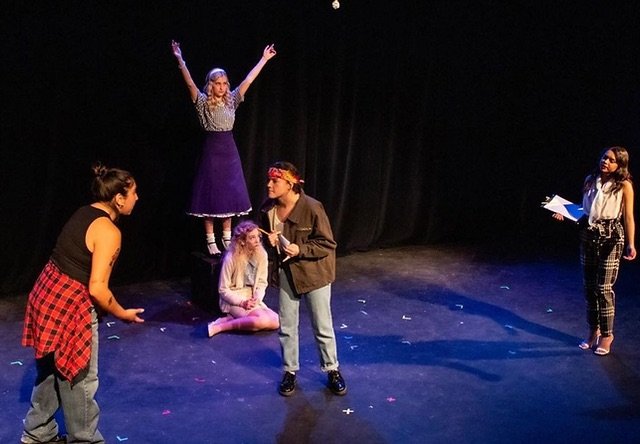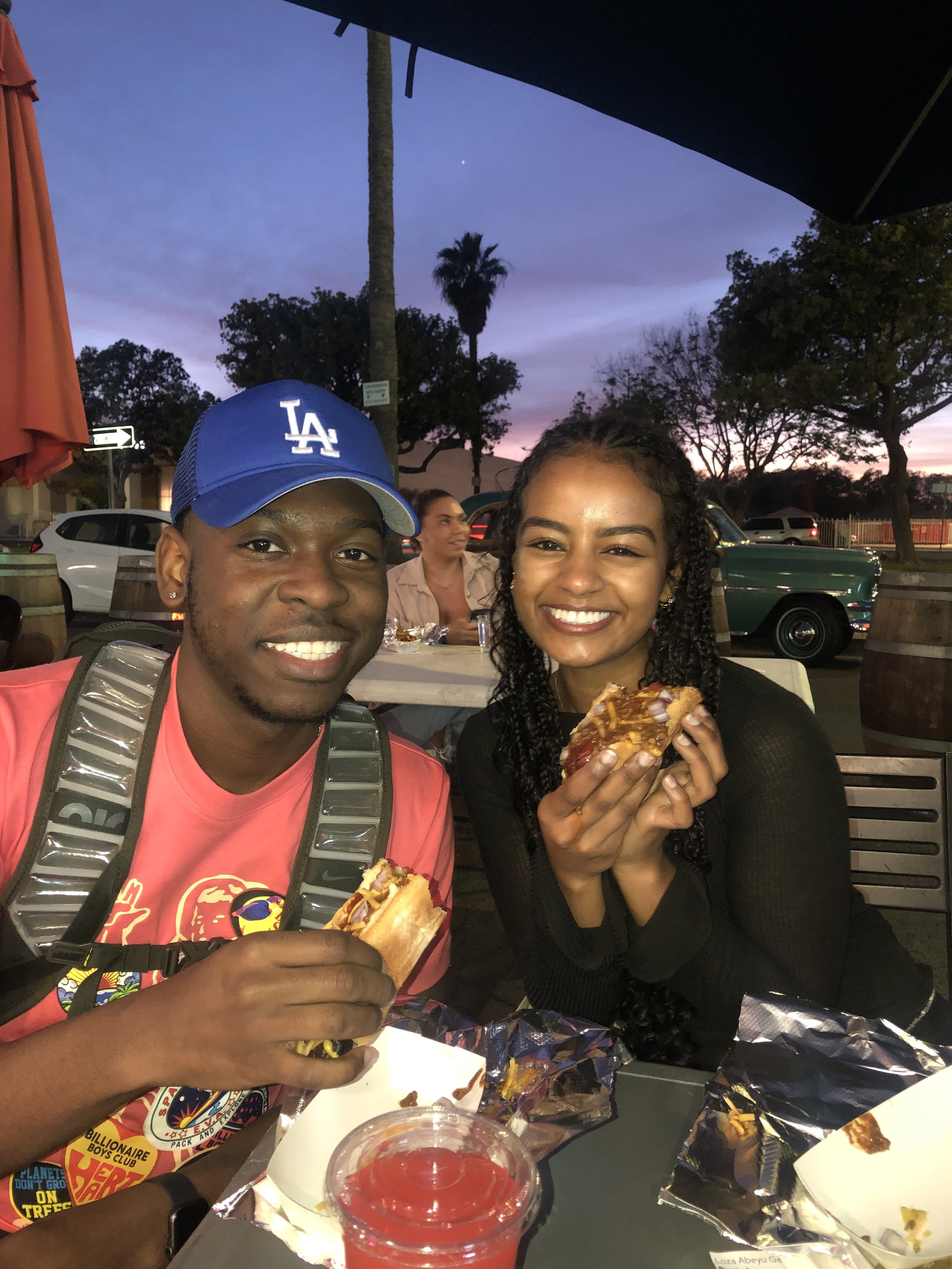Culture
LGBTQ+ History Month takes place throughout the month of October and has become an integral part of the USC community for more than fifty years. The origins of this celebration date back to 1970, when a group of students and faculty established the Gay Liberation Forum. This initiative aimed to advocate for the rights and recognition of LGBTQ+ individuals. After years of dedicated activism and perseverance, the movement achieved a significant milestone in 1975 when it was officially recognized by the USC Board of Trustees. This acknowledgment marked a pivotal moment in the university’s history, solidifying the importance of LGBTQ+ issues within the campus community.
Latine Heritage Month is a great time for Latines to celebrate their culture, build connections with those of similar backgrounds, and learn about their family history. USC offers many resources to aid Latine USC students in this pursuit of celebration and solidarity–including a Latine student lounge in the Student Union, numerous clubs that highlight the intersection of Latinidad with various interests and fields of study, and a range of events being held between September 15 and October 15. For me, I will be spending this month specifically celebrating the half Puerto Rican side of my heritage. To do so, I will be taking the following steps to celebrate half of Latine heritage month.
Last semester, I started at my first work-study job, and it was exactly what everyone thinks of when they think of work-study; I sat at a front desk and did homework for four hours while occasionally being interrupted to make a photocopy or direct a lost student. This type of job is a great option if you worry about balancing work with school – I certainly was my most productive at work and often felt like I was doubling up on my productivity by basically getting paid to do homework. If you’re looking for a more fun and engaging way to earn your work-study award, however, I highly suggest applying next year to be a cat care assistant at the cat shelter Kitty Bungalow, my much more interesting current work-study position.
As an Asian American, AAPI (Asian American Pacific Islander) month is a special time of the year for both me and many others in the U.S.
With origins dating back to the late 1970s, Asian American and Pacific Islander (AAPI) Heritage Month is a significant event in American history. To recognize the contributions made by AAPI communities to American society, Congress presented several joint resolutions in 1977 that called for the observance of Asian/Pacific American Heritage Week. This marked the beginning of the journey towards acknowledgment.
This April marks Armenian History Month, a celebration that has been observed nationwide in the U.S. for nearly eight years. Surprisingly, this is the first time USC has officially embraced and celebrated this occasion, despite the university's renowned Armenian Institute, led by the esteemed Dr. Shushan Karapetian, a distinguished scholar in the field whom I've had the privilege of learning from this past semester.
April is Arab American Heritage Month. At USC, this month and the associated events are spearheaded by the The Middle Eastern North African Student Assembly (MENASA). MENASA has planned seven events including an opening ceremony, art exhibit, lamp mosaic workshop, community dinner, henna night, Ma’amoul making night, and an advocacy event. I had the privilege of speaking with USC MENASA and USG’s Advocacy Liaison, Yasmeen ElFarra, who shared more about MENASA’s experience attending, developing, and planning the events during the month.
April is Asian American and Pacific Islander Heritage Month, and to honor and celebrate the many Asian Americans and Pacific Islanders at USC, here are all the ways you can participate and get involved, including events to go to, communities to support, and books to read!
Since its conception in March 1987, Women’s History Month has been a time to celebrate women—of all backgrounds and identities—and their contributions to society. WHM is also a time to empower younger generations of women—the trailblazers of the future.
USC’s new Sustainability Hub marks a significant stride in its commitment to the environment. This multi-use space is designed as a physical embodiment of USC’s “Assignment: Earth” initiative, aimed at cultivating an eco-friendly campus and planet.
I recently visited the First Generation Plus Success Center (FG+SC) to begin this mission. If you’re like me and you are unfamiliar with FG+SC, here’s what I learned during my time there.
One way USC celebrates diversity and fosters inclusivity is through LGBTQ+ student organizations. Each group serves a unique purpose, ranging from advocacy groups to community-building organizations
Here is a brief overview of the largest LGBTQ+ student organizations available to USC undergraduates:
On October 31, the 4th floor of the Student Union officially reopened after months of remodeling, providing the numerous cultural centers located there a home once again. Prior to this grand reopening, these groups continued to operate while finalizing the changes, including meeting in various locations within the Student Union and its surrounding USC buildings before the 4th floor space became available to the public. Now, these groups can have a regular, comfortable, and revamped meeting spot.
In my first year at USC, like many freshmen, I scrolled through the endless list of student orgs and clubs on campus and attended the involvement fair, but I was overwhelmed by the sheer amount of clubs to choose from and the lack of substantial information about what each club entails. I ultimately found nothing I was interested in joining. It turns out that the best way to gain insight on clubs is to talk to people who’ve attended the meetings and paid the dues.
Every October, USC releases a calendar of events to reflect on the history and achievements of the LGBTQ+ community. The month is meant to be an opportunity for the campus community to recognize the impact and contributions of lesbian, gay, bisexual, transgender, queer, intersex and asexual communities on both the local and national level
On Thursday, September 14, Annenberg held its first ever Kind Fest. The event was dedicated to promoting mental health initiatives on campus and at Annenberg. The festival’s aim was to get students to be intentionally kind, not only to their peers, but to themselves.
Latinx/e Heritage Month, observed between September 15 and October 15, is a time to commemorate the rich history, vibrant culture, and significant contributions of the Latinx/e and Hispanic communities in the United States.
Getting around campus can frequently feel overwhelming with people walking and riding bikes, scooters, and skateboards. Last Wednesday, September 13th, USC Safety and DPS held an event to promote pedestrian, bicycle, scooter, and skateboard safety in which bike bells were given out after completing a short quiz. Here are some easy tips from Wednesday’s USC Safety event if you weren’t able to make it for everyone to feel safer while getting around campus.
By: Lauren Liang ‘23
In honor of Women’s History Month, Trojans360 wants to bring your attention to gender equity resources at USC, ranging from academics to mental health. For a more comprehensive list, please consult the USC’s Student Equity and Inclusion Programs (SEIP) website.
By: Tamanna Sood ‘24
On February 21, I attended An Evening with Nikole Hannah-Jones, creator of ‘The 1619 Project’ at the Bovard Auditorium. Being able to attend this event and listen to Nikole Hannah Jones felt like a dream come true—for young journalists and women of color, Jones is a beacon of hope and inspiration for those who seek to shatter glass ceilings and create new legacies for generations to come.
By: Tamanna Sood ‘24
Founded in 2010 by the United Nations Foundation, Girl Up is a girl-centered leadership development initiative focusing on equity for girls and women in underrepresented spaces. I first learned about Girl Up through my friend Rumaisa Islam, who coincidentally happens to be the president of the USC chapter this year. I recently got the chance to sit down with Islam to learn more about the organization:
By: Dara Udobong ‘23
This Black History Month, USG’s External Affairs Committee and BSA teamed up to provide students with a taste of the local community via the first ever restaurant crawl featuring Black-owned businesses. Starting at USC and traversing the length of South Central LA, the restaurant crawl featured three restaurants that followed a three-course dinner menu perfectly curated for the eager (and hungry) college students who embarked upon this mission.
By: Tamanna Sood ‘24
As the festival season comes to an end, I wanted to document all of the events that happened this festival season on campus. Here is a comprehensive list of events and activities that you can participate in during the season:
By: Nancy Aguilar Sanchez ’22
As a Mexican-American student at USC, here are some of my favorite Latinx artists and media for you to explore in celebration of Hispanic Heritage Month:
By: Kristen Adams ‘25
October is LGBTQ+ History Month, and USC is honoring this month through a wide range of programming, events, and resources to highlight the milestones and legacy of queer history.
By: Tamanna Sood ’24
As a freshman, the main organization you might be hearing about is APASA, [but] APASA bears the burden of representing a lot of communities and groups a lot of experiences together. Here’s a list of clubs that might offer more of the nuanced and personal experiences you’re looking for:
By: Nancy Aguilar ‘22
A brief introduction to live streaming and the gaming community on our very own USC. Enjoy!
By: Kelsey Cheng ‘25
For its annual Culture Night, USC’s Nikkei Student Union showcased an event in celebration of Japanese culture! On March 11, Culture Night took the form of an Obon-style night market at the TCC Grand Ballroom, featuring game booths, performances, and dancing.
By: Nancy Aguilar ‘22
If you’re a USC student and have yet to attend a Men’s Basketball game, this is your time to GO! Read to to discover why Basketball is the best sport to watch on campus. :)
By: Kelsey Cheng ‘25
USC’s Joint Educational Project (JEP) is one of the oldest and largest service-learning programs in the United States. As a volunteer, Trojans can tutor local students, teach yoga, instruct lessons, and more. This fall, I volunteered as a team member for the Peace Project, a mini-course taught at local elementary schools about peacemaking. Here are some of the lessons that I learned from my first time teaching.






























Like the freshman fifteen, there are a few things you can expect to happen during the start of your college career. At the beginning, I thought that secondhand stories and research about college life had prepared me for it all. I knew I would miss my home and my old friends. I could count having conflicts with my roommates and struggling with balancing work and fun. But during my second semester at USC, one thing I hadn’t planned to encounter snuck up on me— an OCD diagnosis.